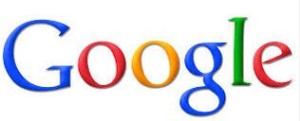
Our language has had to adapt to encompass a wealth of technological jargon. Existing words have taken on new meanings and new words have come into existence. Some of these have morphed from proper nouns such as Google, to verbs such as to google. (Apparently my software has not caught up with this usage. It alerts me of an error with that red squiggly line, but I shall choose to ignore it.) I love googling. I google things all the time. I suggest my students ‘google it’ when they come across words they do not understand, people and places mentioned in texts which might prove significant, how to solve a maths problem even. Everything we need to know is there for the taking. The World Wide Web is the greatest resource ever. In the dim and distant past students had to turn to books in order to find information, encyclopedias or reference books, books found only in the reference section of the library and so accessible only to the most diligent. The advent of technology has been such a boon to students of all disciplines and degrees of resolve. Never has it been easier to find information and gain background knowledge.No longer do we have to leave the comfort of our homes to find out about some obscure fact or fiction. There is no longer any excuse for not knowing.
Our problem now is probably too much information. Where do we start? Which of the two million or so sites do we choose? Invariably the first site we see is Wiki, that site maligned by many teachers as being untrustworthy, an outcast which should never figure in any self-respecting bibliography.Be that as it may be, I find that it’s as good a starting place as any for a quick overview and potential links.It is the potential to find links to existing knowledge, to create a web of understandings leading to new knowledge, which is the true meaning of education (from the latin: e or ex meaning out of and ducare meaning to lead).
Being able to find information quickly and easily is fantastic. It builds confidence. Ignorance is not bliss and a little knowledge is not a dangerous thing, but a launch pad for greater knowledge. All we need to do is learn how to select the information and use it to our advantage.
Once, Windows were made of glass, nets used to catch fish or butterflies, webs were spun by spiders and tweets were bird calls. That was then and now we have the world at our fingertips…literally.
Written by: danuta Paxton
